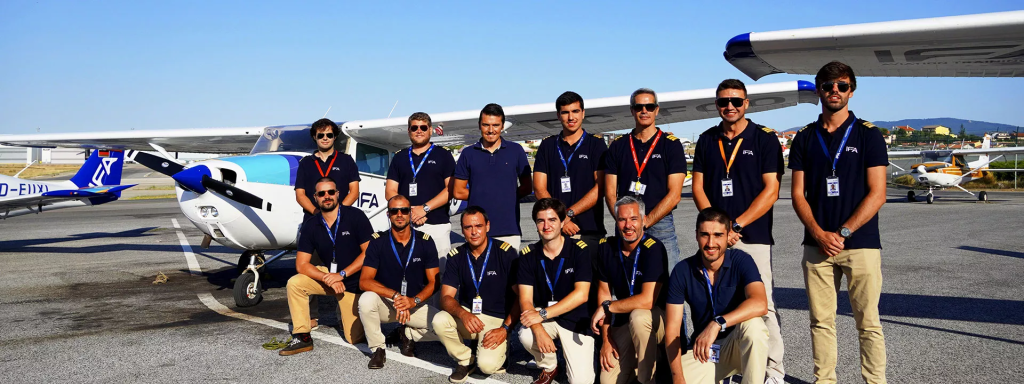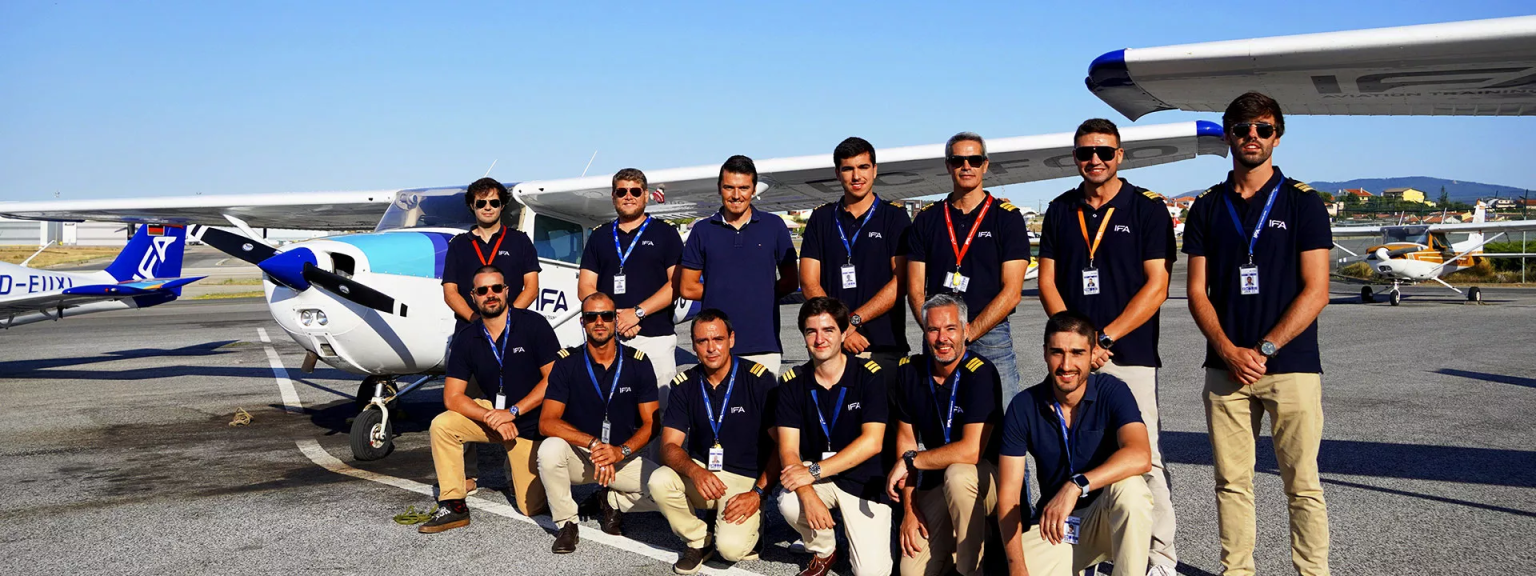
Aviation has become one of the most essential industries worldwide, and Ethiopia has shown significant strides in establishing a robust aviation infrastructure. In recent years, the establishment of international flight academies in Ethiopia has paved the way for aspiring pilots to pursue their dreams. This long-form blog post will take you through the various aspects of the International Flight Academy in Ethiopia, from its importance and history to current opportunities and the future of aviation in the country.
Introduction to International Flight Academy in Ethiopia
An International Flight Academy is a specialized institution that trains individuals to become professional pilots, offering programs in various types of aircraft operation, including commercial airliners, cargo planes, and private jets. These academies serve as a gateway for aspiring pilots to gain the necessary qualifications and skills required to succeed in the aviation industry.
In Ethiopia, the emergence of international flight academies is crucial to the country’s growing role in global aviation. The International Flight Academy in Ethiopia is designed to equip students with the technical and soft skills required for a career in aviation. These academies offer both domestic and international training programs, preparing students for the global aviation market.
What Does an International Flight Academy Mean?
An International Flight Academy refers to an institution that provides comprehensive pilot training, including flight theory, flight hours, and practical hands-on experience with aviation technology. These programs are designed to meet international aviation standards and are often accredited by governing bodies like the International Civil Aviation Organization (ICAO).
Importance of Aviation in Ethiopia
Ethiopia has always had a strategic role in African aviation. The country boasts one of the largest and most successful airlines in Africa—Ethiopian Airlines, which plays a vital role in the growth and development of the African aviation sector. Furthermore, Ethiopia’s central geographical location as a hub for East African air travel has made aviation a crucial aspect of its economy and infrastructure.
The International Flight Academy in Ethiopia supports the country’s aviation industry by training skilled pilots who will contribute to the country’s growing aviation needs, ensuring that the airline industry in Ethiopia remains competitive on a global scale.
Economic Contribution
Aviation is vital to Ethiopia’s economy, contributing significantly to GDP, tourism, and employment. As the aviation sector grows, there is an increasing demand for qualified pilots, making the role of flight academies even more crucial. Moreover, with the Ethiopian government prioritizing aviation as a key sector for development, the country aims to become a regional hub for aviation training in Africa.
History and Development of Aviation in Ethiopia
Early Aviation History of Ethiopia
Ethiopia’s aviation journey dates back to 1945 when the country’s first airline, Ethiopian Airlines, was founded. In the early years, aviation in Ethiopia played a key role in connecting the country to the world, both for commerce and political engagement. The first flight was made by an Ethiopian Airlines plane, which marked the beginning of a significant period of aviation development in the country.
Milestones in Ethiopian Aviation
- 1950s: Ethiopia’s aviation infrastructure started to expand with Ethiopian Airlines becoming a member of the International Air Transport Association (IATA).
- 1970s: Ethiopian Airlines had established itself as one of the leading airlines in Africa.
- 1980s-Present: The Ethiopian government made significant investments in aviation technology, upgrading the country’s air fleet, and enhancing the infrastructure of the Ethiopian Aviation Academy, which later became a cornerstone for flight training.
Current Role of International Flight Academy in Ethiopia
Today, Ethiopia’s aviation sector continues to thrive, and the role of International Flight Academies in shaping the future of the country’s aviation workforce cannot be overstated. These academies are training the next generation of pilots, both for Ethiopian Airlines and other international carriers.
How These Institutions Function
The International Flight Academy in Ethiopia offers a range of programs, from private pilot licenses (PPL) to commercial pilot licenses (CPL), as well as airline transport pilot licenses (ATPL). These programs are structured to meet global standards, and students are often exposed to international aviation practices.
Role in Civil Aviation and Defense
Ethiopia’s flight academies do not only cater to civilian pilots but also to military and defense aviation. Many aspiring pilots join the Ethiopian military aviation sector after completing their training, where they contribute to national defense and security. The Ethiopian government has also partnered with various international defense agencies to enhance the skills of its military aviation personnel.
Eligibility, Training, and Skills Required
Basic Qualifications
To enroll in an International Flight Academy in Ethiopia, candidates must meet the following basic eligibility criteria:
- Education: High school diploma with proficiency in mathematics and physics.
- Health: Applicants must undergo a medical examination to ensure they are fit for flying.
- Age: Candidates must typically be between 18 and 30 years of age.
Technical & Soft Skills
- Technical Skills: These include knowledge of navigation, flight safety, meteorology, and aircraft systems.
- Soft Skills: Leadership, communication, and decision-making are essential for any aspiring pilot.
- Language: Fluency in English is a requirement, as it is the international language of aviation.
Institutes, Academies, and Training Centers in Ethiopia
There are several renowned flight schools and training centers in Ethiopia where aspiring pilots can receive training. Some of these include:
- Ethiopian Aviation Academy – One of Africa’s largest and most prestigious aviation academies, affiliated with Ethiopian Airlines.
- National Aviation Academy of Ethiopia – Offers comprehensive programs and operates under the Ethiopian Civil Aviation Authority.
- Airline Pilot Academy Ethiopia – Provides training for both domestic and international pilots.
- Debre Zeyit Aviation School – A renowned academy offering flight and ground training.
- Aviation Training Center of Ethiopia – Specializes in air traffic control training and ground operations.
Government Initiatives
The Ethiopian government has been proactive in supporting the development of aviation training institutions. The Ethiopian Civil Aviation Authority (ECAA) plays a key role in regulating aviation training and maintaining safety standards across the country.
Technology and Innovation in Aviation Training
Advancements in Training Technology
The International Flight Academy in Ethiopia is continuously integrating modern technology to enhance pilot training. Flight simulators have become a standard in aviation training, allowing students to practice flight operations in a controlled and safe environment.
The use of AI in space travel and digital cockpits is gradually becoming a part of the curriculum, offering future pilots the opportunity to learn about cutting-edge technologies that will shape the future of aviation.
Global Agencies’ Influence
Collaborations with global agencies such as NASA, ISRO, and CNSA influence the way flight academies in Ethiopia integrate modern technologies into their programs. Students at these academies have the opportunity to learn about advancements in space exploration and satellite navigation, which are increasingly important for modern aviation.
Challenges Faced in Pilot Training in Ethiopia
Despite the progress made, there are several challenges faced by International Flight Academies in Ethiopia:
- Infrastructure Gaps: Although the country has made significant advancements, there is still a need for more modern aviation infrastructure.
- High Costs: The cost of flight training is high, which may limit access for some students.
- Regulatory Hurdles: Navigating through aviation regulations can be complex for both students and institutions.
- Brain Drain: Many trained Ethiopian pilots leave for better opportunities abroad, which affects the country’s ability to build its aviation workforce.
Future of International Flight Academy in Ethiopia
As global aviation continues to evolve, Ethiopia’s International Flight Academies are adapting to emerging trends. The future of aviation in Ethiopia includes:
- Space Tourism: With the global growth of space tourism, Ethiopia is well-positioned to become a player in the space tourism sector, offering specialized training for astronauts.
- Private Aviation: There is an increasing demand for private pilots, and the rise of private aviation in Ethiopia will create more opportunities for trained pilots.
- AI in Cockpit Training: The future of flight training will likely include more automation and artificial intelligence in cockpit operations, which will be integrated into the training curriculum.
Career Path & Opportunities
A typical career path for an aspiring pilot in Ethiopia involves:
- Education: Completing a high school diploma with a strong focus on science and mathematics.
- Pilot License: Enrolling in a flight school and earning a private or commercial pilot license.
- Advanced Training: Continuing with additional ratings or certifications, such as an airline transport pilot license.
- Airline/Space Program: After completing training, pilots can join airlines or space programs.
Local Salary Expectations
Pilots in Ethiopia can expect to earn competitive salaries, particularly those employed by Ethiopian Airlines. However, salaries may vary based on experience and type of employment.
Global Scope
Many Ethiopian pilots who have trained locally also seek international opportunities, as the aviation industry offers numerous job prospects worldwide.
FAQs
1. How much does pilot training cost in Ethiopia?
Pilot training costs vary, but the total cost can range between $30,000 to $50,000 depending on the program.
2. Which is the best aviation institute in Ethiopia?
The Ethiopian Aviation Academy is one of the most recognized and reputed institutes for pilot training in the country.
3. What qualifications are needed for pilot training in Ethiopia?
A high school diploma with proficiency in mathematics and physics, a medical certificate, and a minimum age of 18.
4. Is international flight training available in Ethiopia?
Yes, international flight training programs are available, and many local institutions offer globally recognized certifications.
5. What is the future of aviation in Ethiopia?
Ethiopia’s aviation sector has a bright future, with increasing demand for pilots and an expanding air traffic network.
Conclusion
The International Flight Academy in Ethiopia plays a vital role in shaping the future of aviation in the country. As global aviation continues to grow, Ethiopia’s flight academies are poised to produce skilled pilots who will contribute to the nation’s aviation infrastructure and global competitiveness. If you aspire to become a pilot, Ethiopia’s flight training programs offer a great opportunity to pursue a fulfilling career in aviation.
